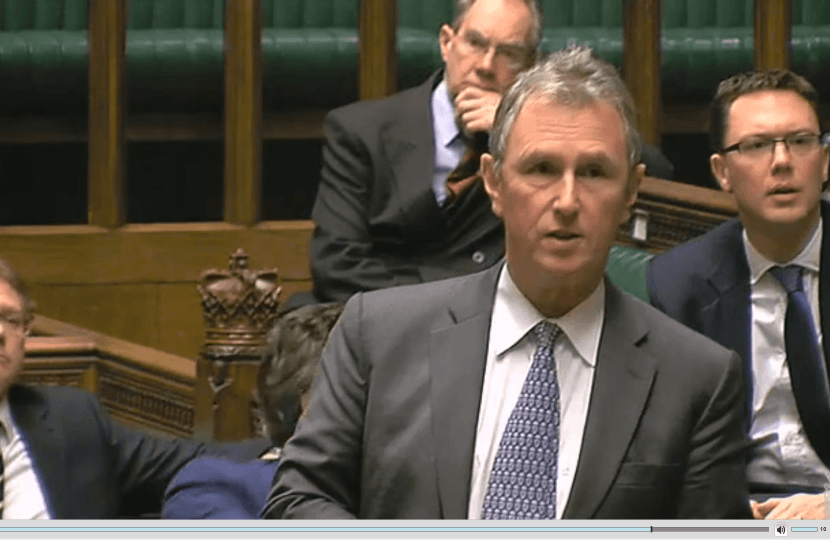
Nigel Evans, MP for the Ribble Valley, led a floor debate in the House of Commons on the important issue of flooding. Joined by his colleagues in Parliament, Nigel began his speech by recounting the massive flooding which occurred on Boxing Day from over a year ago. Nigel recounted the hardships the people of Ribble Valley went through and continue to go through from the flooding. Nigel also spoke of the communities of the Ribble Valley coming together and showing strength. He spoke of and thanked the many people who went “above and beyond the call of duty” to help others, neighbours and strangers alike.
Nigel praised, among others, Gillian Darbyshire, the head of the Whalley District Lions, and Kelly Hughes, a local volunteer, as well as emergency services and the Ribble Valley Borough Council, for all their actions towards the relief effort. Fellow MP Seema Kennedy from South Ribble also paid tribute to both Nigel Evans and local volunteers for their community service and actions during the flood.
Nigel also raised concerns of Ribble Valley when it comes to future flooding. He pointed to housing developments being made by Red Row, which have breached the conditions for how the developments are to have attenuation ponds to prevent future floods. Nigel found Red Row’s irresponsibility reprehensible, saying:
“How dare they not take the action that they should at this moment in time, and think that’s okay to carry on building those houses without putting in that proper attenuation.”
Nigel also asked Therese Coffey MP, Minister for the Environment and Rural Life Opportunities, about what Government action is being taken to prevent flooding issues in Whalley for the future, and what lessons have been learned to improve the Government’s response. The Minister responded that the Government has begun to build up more defences against flooding in the future, and that the Government has created the National Resilience Flood Review to see what it can learn to lessen future flooding. Furthermore, the Minister said the Government should continue to play a key role in helping people at risk of floods and that it has spent £2.5 billion have been spent on 1,500 new flood schemes, as well as increasing maintenance spending.
